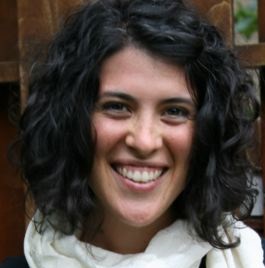Hannah Kapnik Ashar

What if we want to treat Jews not as consumers of these four domains, but as co-creators? What balance do we want organizations to strive for between providing experience and empowering Jews to own and evolve each of these domains?
Three of these propositions are inherently empowering, demanding participation, agency, and ownership. Seekers of community will co-create communities they are part of; seekers of social justice will be agents of change through their justice work; seekers of lives of sacred purpose will only feel their lives transformed when they actively integrate meaningful practice into their lives. In the pursuit of these three realms, seekers are co-creators, not consumers. The effort and agency that Jews put into these realms will help them to feel commitment to the Jewish project and will help them own their piece of the Jewish story.
Unlike these other domains, seekers of wisdom can be strictly consumers. There is not necessarily any agency in hearing great divrei torah or in reading powerful texts. Seekers of wisdom need not act as co-creators of Torah interpretation. They can simply receive.
I see two problems with the possibility that seekers of wisdom be consumers of Torah rather than co-creators of Jewish wisdom: 1) it fails to cultivate a sense of ownership of Yiddishkeit and responsibility for its perpetuation in the seeker of wisdom; and 2) it means that only a sliver of the population is generating content that speaks directly to the milieu of modern Jews. This means fewer Jews in the successive generation will find and hear Jewish wisdom that speaks to them deeply; fewer Jews will be ushered into the Jewish conversation.
I manage the fellowship year at The Bronfman Fellowship. Text study is at the core of The Bronfman Fellowship and we privilege texts that are ripe for interpretation. Fellows become contributors to Jewish wisdom by analyzing and interpreting text, looking for subtext and windows within the text and bridging a given text to other sources they’ve encountered. Through close textual readings and interpretation-rich study, seekers of wisdom can become agents in “expanding the palace of Torah.[1]”
Earlier generations took textual analysis and interpretation to levels well beyond what we do on the fellowship. Midrash and chasidut engage an unabashed reinterpretation style. This style goes so far as to occasionally intentionally misread a Torah source. These misreads are at once absurd and also allow a profound relevance of Torah in contexts of evolving values. Here is a stunning example of midrash: “And Jacob awoke from his sleep (mi’shnato) and said, ‘Indeed, God is in this place and I did not know.’ Rebbi Yochanan would say, ‘And Jacob awoke from his learning (mi’mishnato) and said, ‘Indeed, God is in this place…’” (Genesis Rabbah, Vayetze 69:7). Rebbi Yochanan transforms this moment, adding a single Hebrew letter and a world of ideas: it is not in sleep that Jacob dreamt his ladder with the angels ascending and descending, but in learning – in the pursuit of wisdom – that Jacob dreams a path to heaven. When Jacob is accessing divinity through study, Jacob becomes a comrade of Rebbi Yochanan. And through Rebbi Yochanan’s teaching, we see the need for innovative interpretations of our most precious texts in order to deeply relate to them. I wonder if we can resuscitate this kind of unabashed interpreting of Torah.
What might happen if our institutions set their sights on emboldening modern Jews to contribute to the body of chochma by embracing Torah with arms of creativity? This could transform us from dorshei chochma, seekers of wisdom, to darshanei chochma, pursuers and generators of wisdom. Might we better perpetuate the Jewish project if we not only strive to give access to wisdom, but strive to empower others to evolve our wisdom?
[1] Originally an idea of Rabbi Abraham Isaac Kook, now the title of a book on Orthodox Jewish feminism by Tamar Ross
____________
Hannah Kapnik Ashar is a faculty member and Manager of Fellowship Year Experience with The Bronfman Fellowship and a rabbinic intern at Congregation Bonai Shalom in Boulder, CO. Hannah founded The Tefilah Retreat, a weekend of Jewish spiritual practice for young adults, and Boulder Denver Chevre, an independent minyan/Kevah group.

